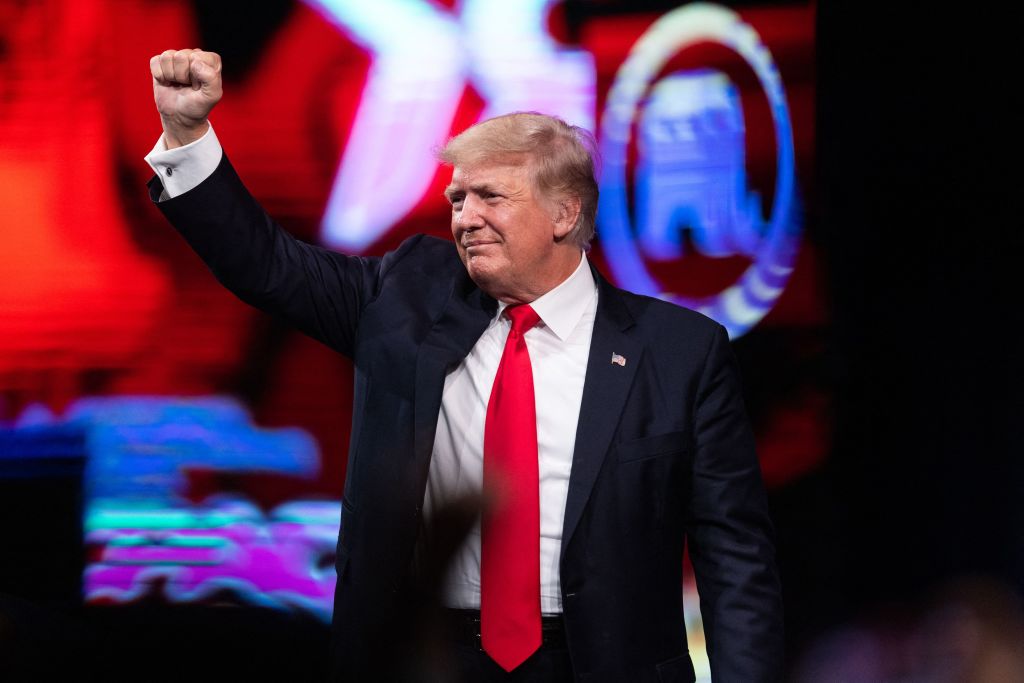The Justice Department has released a 2019 memo that put to rest any prosecution of former President Donald Trump over allegations contained in the Mueller report.
Special counsel Robert Mueller, whose investigation was criticized by Trump, was hired to probe allegations of collusion between the 2016 Trump campaign and Russia. He found no such connections.
However, Mueller’s report cited 10 instances in which he believed there could have been possible obstruction of justice, without saying if they merited prosecution, according to NBC News.
That prompted a DOJ review, which culminated in the nine-page memo released Wednesday. The memo said there was no justification to prosecute Trump for obstruction of justice.
The memo was released after the group Citizens for Responsibility and Ethics in Washington filed a Freedom of Information lawsuit. The DOJ opposed the request, but lost the case in court, NPR reported.
The memo said Trump’s requests to fire Mueller were made “not for an illegal purpose, but rather because he believed the investigation was politically motivated and undermined his administration’s efforts to govern.”
The memo stressed that Trump wanted to end the distractions caused by the probe.
“The President’s public statements could be viewed as efforts to defend himself from public criticism related to the Special Counsel’s investigation or to discourage the witnesses from making what the President believed might be false statements in exchange for a lesser sentence. Those statements do not warrant a prosecution for obstruction of justice,” the memo said.
“In the absence of an underlying offense, the most compelling inference in evaluating the President’s conduct is that he reasonably believed that the Special Counsel’s investigation was interfering with his governing agenda.
“Even if the President were objectively wrong about the intentions of the Special Counsel, many, if not all, of his actions could be viewed as lacking the intent element under the relevant statutes,” the memo said.
The memo touched on Trump’s dismissal of FBI Director James Comey and a comment he made to Comey related to an investigation of former national security advisor Michael Flynn.
“The President’s expression of ‘hope’ that Comey would ‘let this go’ did not clearly direct a particular action in the Flynn investigation, and Comey did not react at the time as though he had received a direct order from the President,” the memo said.
The result, the memo said, was that prosecution was not warranted.
“A fair evaluation of the special council’s findings and legal theories weighs in favor of declining prosecution,” the memo said.
“While cataloguing actions that the president took, many of which took place in public view, the report identifies no actions that, in our judgment, constituted obstructive acts, done with a nexus to a pending proceeding, with the corrupt intent necessary to warrant prosecution under the obstruction-of-justice statutes.”
Mueller’s “thorough investigation did not establish that the President committed any underlying crime related to Russian interference,” the memo said, noting that “it would be rare for federal prosecutors to bring an obstruction prosecution that did not itself arise out of a proceeding related to a separate crime.”
“Having reviewed the Report in light of the governing legal principles, and the Principles of Federal Prosecution, we conclude that none of these instances would warrant a prosecution for obstruction of justice, without regard to the constitutional constraint on bringing such an action against a sitting president,” the memo said.
“In addition, we believe that certain of the conduct examined by the Special Counsel could not, as a matter of law, support an obstruction charge under the circumstances.”
This article appeared originally on The Western Journal.























